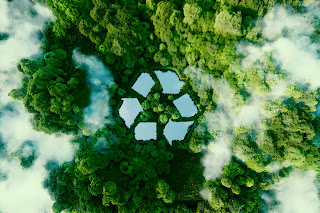Managing Waste Effectively: Creating a Sustainable Future.
Waste management is an essential service that ensures the safe and efficient disposal of waste while minimizing its impact on the environment and human health. In a world where population growth and industrialization are accelerating, proper Waste Management Recycling plays a critical role in maintaining the balance between economic development and environmental sustainability.

What is Waste Management?
At its core, waste management involves the collection, transportation, processing, recycling, and disposal of waste materials. This includes everything from household garbage and construction debris to industrial byproducts and hazardous waste. The goal is to reduce the environmental footprint of waste and promote sustainable practices that benefit current and future generations.
The Importance of Waste Management
Environmental Protection: Improper waste disposal can lead to severe environmental issues, including soil, air, and water pollution. Waste management systems ensure that harmful substances are contained and treated to prevent contamination.
Resource Conservation: Through recycling and reusing materials, waste management reduces the demand for raw resources. This conserves natural resources like timber, water, and minerals while reducing the energy needed for production processes.
Public Health and Safety: Poorly managed waste can attract pests, spread diseases, and create health hazards for communities. Proper waste handling reduces these risks and ensures a cleaner and safer environment.
Climate Change Mitigation: Decomposing organic waste in landfills releases methane, a potent greenhouse gas. By diverting waste from landfills through composting, recycling, and waste-to-energy initiatives, we can significantly lower greenhouse gas emissions.
Key Components of Waste Management
Waste Segregation: Effective waste management begins with sorting waste at the source. This involves separating materials into categories such as recyclables, organic waste, and hazardous substances.
Recycling and Reuse: Recycling transforms waste materials into new products, reducing the need for virgin resources. Reuse extends the life of products, further minimizing waste generation.
Composting: Organic waste, such as food scraps and garden clippings, can be composted to create nutrient-rich soil amendments, reducing the volume of waste sent to landfills.
Landfilling: When waste cannot be recycled or composted, landfills provide a controlled environment for its disposal. Modern landfills are engineered to contain and manage waste safely.
Waste-to-Energy: This process converts non-recyclable waste into usable energy, such as electricity or heat, providing an alternative to traditional disposal methods.
The Role of Individuals and Businesses
Individuals and businesses alike play a vital role in ensuring effective waste management. Simple actions like using reusable items, composting organic waste, and properly recycling can make a significant impact. Companies can adopt sustainable practices by reducing packaging, choosing eco-friendly materials, and participating in extended producer responsibility programs.
Towards a Zero-Waste Society
The concept of zero waste aims to eliminate waste generation altogether by designing systems that mimic natural cycles. This involves rethinking how products are made, consumed, and disposed of, promoting a circular economy where resources are continuously reused.
Conclusion
Waste Management Recycling is more than just a necessity; it’s a responsibility that we all share. By adopting sustainable practices and supporting innovative waste management solutions, we can protect the environment, conserve resources, and pave the way for a cleaner, healthier planet. Let’s act today for a better tomorrow.


Comments
Post a Comment